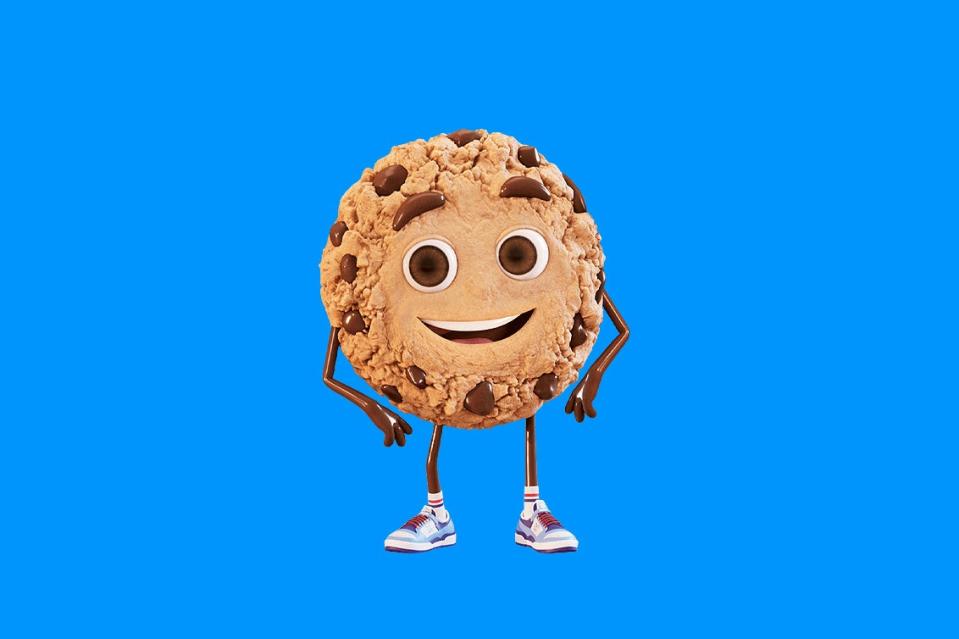How the Hulu Docuseries Black Twitter: A People’s History Reckons With the Black LGBTQ+ Experience

Disney
Anyone who has ever replied to a tweet using a GIF of Real Housewives legend Nene Leakes has felt the effects of Black Twitter. But what, exactly, is Black Twitter? If you’ve ever wondered, then you’re in luck, because Black Twitter: A People’s History, a new Hulu and Onyx Collective docuseries, is here to explain one of the internet’s most generative subcultures.
Directed by Insecure Emmy nominee Prentice Penny and based on Jason Parham’s 2021 cover story for WIRED, Black Twitter tracks the rise of this “influential force” across three episodes. Using a combination of talking head interviews, cookout-style verité conversations, and roundtable discussions, the series takes the People’s History portion of its name seriously, giving the very Black users who helped popularize the space an opportunity to recount its ascent in their own words, whether they’re laughing about Rihanna’s infamous battle with Ciara or describing how hashtags became key to drawing attention to the killings of people like Trayvon Martin and George Floyd.
Of course, LGBTQ+ people make up a large contingent of Black Twitter, and thankfully, A People’s History makes ample room to discuss their contributions, documenting the good (how the platform has served as a place for Black queer people to find community) and the bad (how that same platform has become just another portal for us to be confronted with the prejudiced perspectives held by some members of our community) with clarity and respect. “Even now, our queer brothers and sisters and nonbinary folks are not considered part of this Black community,” one participant notes about the exclusionary nature of some of Black Twitter’s anti-LGBTQ+ rhetoric. “When we talk about Blackness, we’re talking about this kind of Blackness and not this kind.”
A People’s History keeps it balanced. There is an entire section dedicated to Gabrielle Union and Dwyane Wade, spotlighting the couple as prime examples for how straight Black people can better show up for their queer kin. But the series isn’t interested in a sanitized analysis of Black Twitter; its strongest attribute is its willingness to examine the situation with clear eyes. As Parham says, “If we’re going to tell an authentic and true story about ourselves, we have to tell all sides of it.”
Ahead of the Hulu premiere of Black Twitter: A People’s History, Them hopped on Zoom with director Prentice Penny, showrunner Joie Jacoby, and WIRED senior writer Jason Parham to talk about giving concrete structure to an abstract concept, why addressing the platform’s homophobia felt like Luke Skywalker facing the Emperor in The Return of the Jedi, and how the advocacy work being done for Black trans women is an extension of the same grassroots organizing that led to the rise of the #BlackLivesMatter movement.
So, as the series makes clear, Black Twitter is not some specific space that you can “go to” or “visit.” It’s an amorphous concept that encapsulates everything about the ways that Black people use the platform, and the ways that they’ve found and built community through interacting with each other. Where do you even start with a story like this?
Jason Parham: I think there are a few ways in. But when I originally did the oral history, I was interested in that first activation point where you really saw Black folks on the platform gathering together [in a way] that would later reflect the plurality of what Black Twitter represents — and that was the hashtag #UKnowUrBlackWhen. That was sort of the inciting moment, and it speaks to so much of what came after because it’s the first time where you see Black folks really riffing on top of a joke, which is so representative of what happens with meme culture, with GIF culture, with everything that we represent now on the platform.
From there, I [decided] this has to be chronological because I just wanted to tell the story as truthfully as I could. So I was looking for tentpole moments: #TwitterAfterDark, #ThanksgivingWithBlackFamilies, #ThanksgivingClapback. Then you have #BlackLivesMatter, which is sort of part two, when the platform grows up and they have to step into their responsibility. That’s when you see more eyes come onto Black Twitter. And then, part three is always the hardest: How and where do you end it? I was really interested in looking at the legacy.
Prentice Penny: To Jason’s point, he wrote the article in 2021. The article ends with January 6th. But so many other things had happened by the time we were making [the series]. Like, as we’re making the doc, Elon [Musk] buys the platform, so now we have to address that. Things are changing in real time. So when do you end it? It was almost like we were adding things up to the last second.
Joie Jacoby: Also, Black Twitter is a character itself, so it had to have character development throughout the doc. We envision this as a coming-of-age story, and so you’re seeing Black Twitter grow and deal with different challenges throughout. That was sort of a guiding principle.
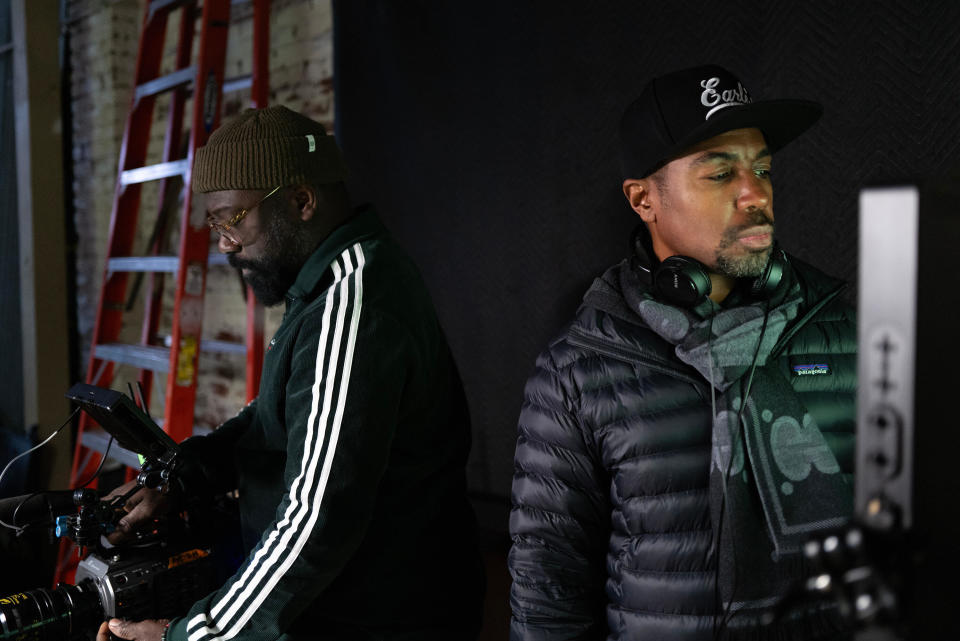
Black Twitter: A People's History
One of the first things that struck me was that “Black Twitter,” as a term, only came into play once white people started commenting on how Black people used the platform. With that in mind, I find it fascinating that we never really got other Twitter groups like that. There are other examples — New York Twitter, Media Twitter, Film Twitter, High Fashion Twitter, etc. — but I don’t think any of them “exist” in the same larger cultural framework as Black Twitter. Do you have any ideas about why that would be the case?
J.P.: I think it’s partly just societal. We’re always trying to put people in categories. I remember the Choire Sicha article, which was the first article that was like “What are these Black people doing over there?” And from that point forward, it grew and grew. In Slate and the Times, we saw all these articles. But Black folks were like, “We’re just on Twitter having fun with our friends. What is he talking about?” So it did feel like being in a Petri dish in a way.
But I think Black Twitter is, certainly of all the different communities on Twitter, the most encompassing. Within Black Twitter, there are so many different subsets. But there’s still NBA Twitter, there’s still Relationship Twitter. There are certainly other communities. But there’s something about Black Twitter because it drives the platform. It drives conversation in a way that other communities don’t, so it’s like, we need to give it a name, and we just ran with it.
P.P.: There’s this thing in America, going back to when we were first brought over here, which is that us gathering could be a problem. Why are they gathering over there? Even if you’re in an office, if two Black people are talking, you’re always kind of aware of, “Oh, what are they talking about over there?” So I think there’s this idea where mainstream American culture is obviously very fascinated by us, but also curious, but also nervous, and all at once. And so anytime we’re gathering and doing something — and certainly doing something that feels communal — it’s like, What is happening? I’d be curious [if we’d be using the “Black Twitter” label if] that article had never been written, because like Jason said, we were just on the platform.
J.P.: I think white folks — and white media, specifically — were so quick to label it because they were trying to understand it. But even now, 20 years on, they still don’t. Nobody really does. We’re uncategorizable.
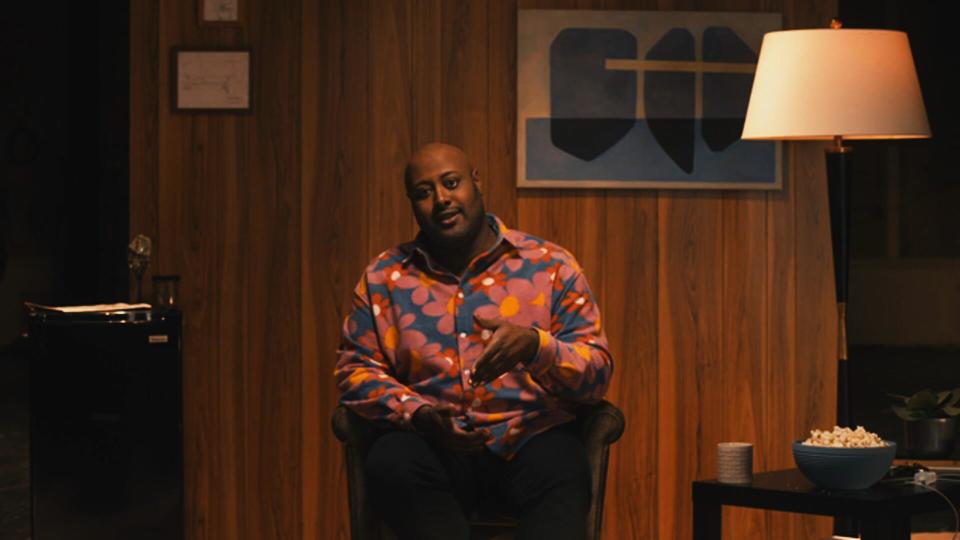
Black Twitter: A People's History
That’s why we need this doc!
J.J.: Baratunde [Thurston] said something in the doc like, “We’re going to use the microphone any way we can. We’ll always find a way.” [There are] so many times throughout Black American’s time in this country where we’re being silenced, where they’re trying to shut us up, but we’re always going to find a way out of no way. And that speaks to how prolific the influence of Black Twitter is. It’s a microphone, and so we’re going to say it and put it out there for the world to hear, whether or not they want to. And I’m just going to say it: I think Black Americans drive culture in America, from language to music to food.
P.P.: Style!
J.J.: I mean, we know The 1619 Project and all the different ways that we’ve been able to drive culture, so it’s not surprising that it’s the dominant group on Twitter.
“I think white folks — and white media, specifically — were so quick to label it because they were trying to understand it. But even now, 20 years on, they still don’t. Nobody really does. We’re uncategorizable.”
I’d love to talk about how the docuseries discusses queerness and the impact that LGBTQ+ people have had on Black Twitter. Jason, you included a section about queer people in your original Wired report. Did you go into the project always knowing you’d discuss that or was it something that revealed itself to you as you did the research?
J.P.: I was really interested in telling as complete a story as I could, and part of that story is talking about all the communities and subsets within Black Twitter — and part of that is the trans experience, the gay experience, the bi experience, the lesbian experience of Black people on Twitter. And not just the good side of it, but the toxic side of it and what they come up against every day. I think if we’re going to tell an authentic and true story about ourselves, we have to tell all sides of it.
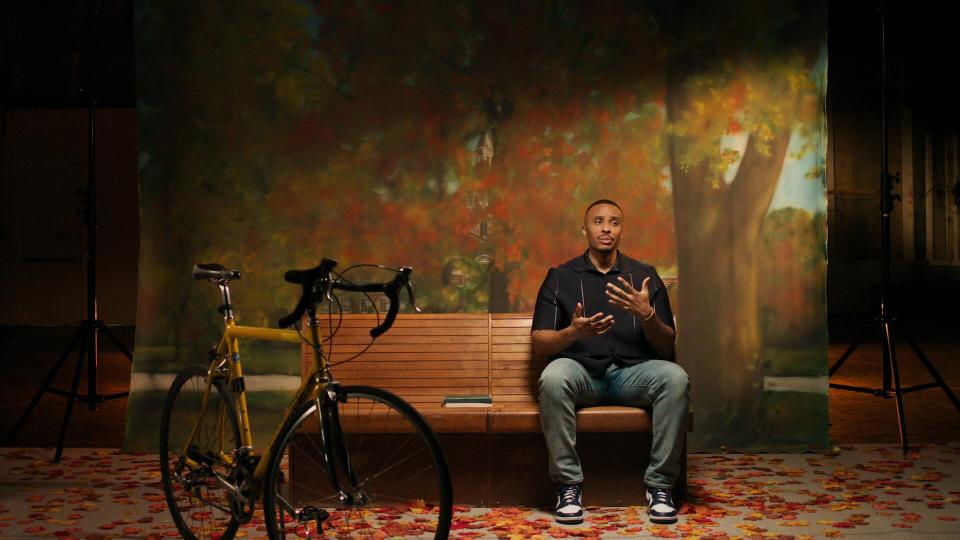
Black Twitter: A People's History
For so much of this docuseries, the tone feels celebratory, light, easy. But once we get into these discussions about the queer experience within Black Twitter, the tone gets more serious as we’re forced to confront these uncomfortable truths about the homophobia and transphobia harbored by many Black users on the platform. How did you find a balance between the doc’s more fun aspects and its heavier topics?.
P.P.: In so many ways, Black Twitter just moves the way Black people move in the world, regularly. And in a coming-of-age story, the most important thing is when the hero has to look inward in their journey. We use Stars Wars and Harry Potter as references. So, in Return of the Jedi, the most pivotal moment is when the Emperor tells Luke, “You could become evil, too. You can become powerful, too, if you kill your dad.” Now, the hero has to [reckon with] I’m not just fighting the emperor. I have to fight something inside of me.
And that was really pivotal for the doc. Yeah, Black Twitter can stand up and rally against other foes. But I hate when I see things about Black people where it’s like, “Oh, we’re perfect. We’re infallible. We’re almost two-dimensional.” If I just celebrated and talked about all of that in the doc, then we would just be saying, “Look at Black people! Aren’t we magical and amazing?” But without saying, “No, we have problems, too. We have issues in our community that we have to deal with.” If we’re going to grow, we have to hold these things accountable.
It’s the same way that sometimes in the church, we turn a blind eye to the person that’s molesting the kids because we don’t want to say [anything]. Or an uncle that’s touching us all. We just let those things go because it’s like, “I don't want to talk about it.” But, no, we have to talk about it. We can’t let that stuff go. We have to address it. We have to turn that mirror back on ourselves and go, “What are the ways we need to grow?” Because if we don’t address that, then we really can’t grow. We’re just going to stay in the same place.
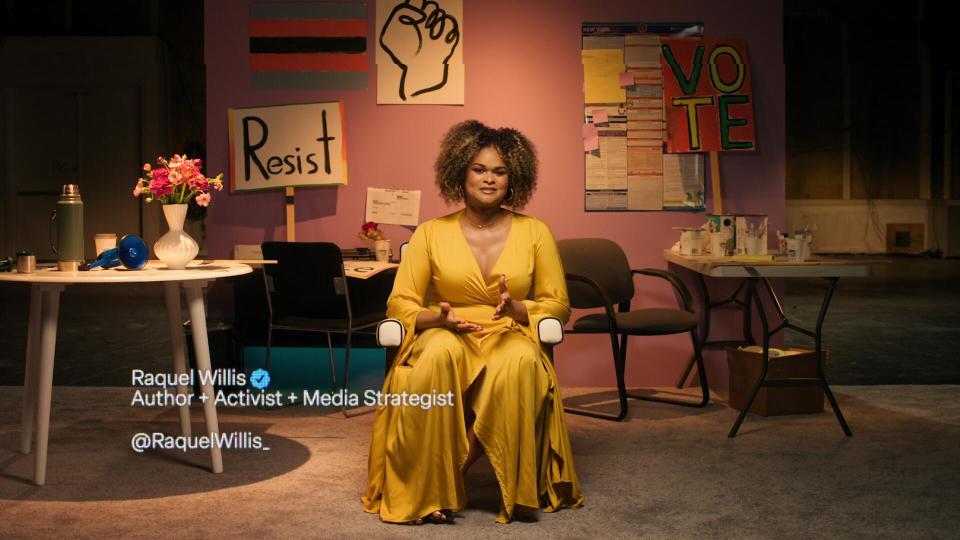
Black Twitter: A People's History
Can you talk a bit more about casting? I know some of the talking heads, like Raquel Willis and Michael Arceneaux, had already been included in the original article. But it was nice to see the addition of familiar online personalities like Ira Madison III and Roxane Gay.
J.J.: We were brainstorming about having diversity from all different angles — not just in terms of sexuality, but occupation, their focuses, when did they join the platform, how involved were they in the platform. It was extremely important not to just rely on celebrity. People will do these docs and just want to have the biggest, shiniest names. But no — what are the most authentic names? People that have actually been a part of Black Twitter? There were so many times when people would bring up a celebrity, and Prentice was always like, “No. Why is that important to this story?” But Ira is hilarious and he needed to be there. As a documentarian, I’m always so grateful to the people that are willing to sit down in the chair and share their stories.
One of the highlights of this docuseries is its examination of the way Black Twitter has influenced and shifted the way that we both dispense and digest news. For example, #BlackLivesMatter has led to a wider discussion about the violence regularly enacted on Black people, helping people like Trayvon Martin and George Floyd become household names despite the mainstream media’s failure to unbiasedly report on their deaths.
“If you’re concerned about whether or not Black Twitter continues in this post-Elon era, we’ve seen that it does.”
In the last several years, I’ve seen in real-time how Twitter has done a similar thing for Black trans women, who are being killed at an alarming rate but whose deaths are routinely ignored in national news and mainstream media. Do you think there’s a direct link between the more universal form of Black organizing we saw in the earliest days of Black Twitter and this new iteration of organizing we’re seeing around specific groups?
J.P.: Yeah, I think there’s a very specific link. There’s an internet pre-Black Twitter and an internet that’s post-Black Twitter, right? Black Twitter was so influential that it gave the internet a language. It gave it a way to speak and communicate in ways that you’re still seeing when people are mobilizing online — and how that mobilizing online is having action in real life. You’re seeing things like the #BlackLivesMatter movement not just having an effect in 2014 and 2015, but now, years and years later.
To your point, it’s helping people mobilize around trans issues, around queer issues, in really important ways, and giving people a sort of code book to speak to these things. People are calling for receipts. People are calling people out because Black Twitter was like, “Yo, you have the authority and the agency to do this, and you should speak up and use your platform.”
P.P.: That’s the beauty of Black Twitter: it is community. And it’s very important when you feel you’re alone. So if you’re a Black or trans person in a neighborhood or town where there’s two of you, you can go on the platform and feel like, Oh, I’m not alone, even though, here, locally, I am. But if I need resources, if I need information, I can put that out there and get a million things back.
I just think that’s so powerful to feel like you have access to something past where you’re at — to feel that you’re seen, you’re heard, and that things can actually have action. Because it’s nice to feel seen and heard; that’s super important. But when you feel like, “I’m seen or heard, but I can’t do anything,” that’s also disheartening. So the fact that that [action] can happen on the platform is so powerful, and I think that’s the way I’m seeing it play out in those communities too.
The cookie brand wrote “did you just clock me?????” in response to a question about surgery.
You mentioned Elon Musk earlier. Since wrapping the show, have you noticed any more changes in the way Black Twitter has been functioning since he bought the platform?
J.J.: If you’re concerned about whether or not Black Twitter continues in this post-Elon era, we’ve seen that it does. That’s clear. Last month, with the earthquake in New York? We were there. We were ready to go. It’s still strong. There were moments when we were editing where it was just like, ugh, we can’t respond to everything this man does — he’s changing things by the second! But what is driving the story? What is the legacy of this platform? We see that it continues. It doesn’t matter who owns it at this point. Speaking to what Prentice just said about community, we’re still finding each other there and that I think will continue.
And we have to stay ready! It’s an election year and we know how important our voices are. To move this country forward, we have to be politically activated. It’s good to know we’re still on it.
This conversation has been edited and condensed for clarity.
Black Twitter: A People’s History is streaming on Hulu now.
Get the best of what’s queer. Sign up for Them’s weekly newsletter here.
Originally Appeared on them.
